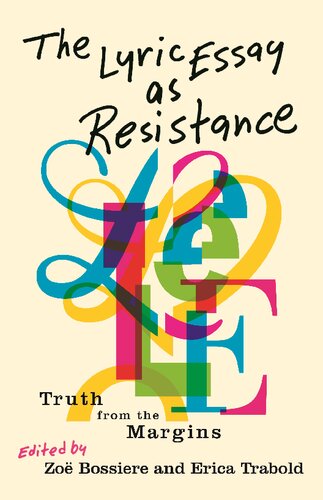

Most ebook files are in PDF format, so you can easily read them using various software such as Foxit Reader or directly on the Google Chrome browser.
Some ebook files are released by publishers in other formats such as .awz, .mobi, .epub, .fb2, etc. You may need to install specific software to read these formats on mobile/PC, such as Calibre.
Please read the tutorial at this link: https://ebookbell.com/faq
We offer FREE conversion to the popular formats you request; however, this may take some time. Therefore, right after payment, please email us, and we will try to provide the service as quickly as possible.
For some exceptional file formats or broken links (if any), please refrain from opening any disputes. Instead, email us first, and we will try to assist within a maximum of 6 hours.
EbookBell Team

4.4
22 reviewsLyric essayists draw on memoir, poetry, and prose to push against the arbitrary genre restrictions in creative nonfiction, opening up space not only for new forms of writing, but also new voices and a new literary canon. This anthology features some of the best lyric essays published in the last several years by prominent and emerging writers. Editors Zoë Bossiere and Erica Trabold situate this anthology within the ongoing work of resistance-to genre convention, literary tradition, and the confines of dominant-culture spaces. As sites of resistance, these essays are diverse and include investigations into deeply personal and political topics such as queer and trans identity, the American BIPOC experience, reproductive justice, belonging, grief, and more.
The lyric essay is always surprising; it is bold, unbound, and free. This collection highlights the lyric essay's natural capacity for representation and resistance and celebrates the form as a subversive genre that offers a mode of expression for marginalized voices. The Lyric Essay as Resistance features contemporary work by essayists including Melissa Febos, Wendy S. Walters, Torrey Peters, Jenny Boully, Crystal Wilkinson, Elissa Washuta, Lillian-Yvonne Bertram, and many more. Their work demonstrates the power of the lyric essay to bring about change, both on the page and in our communities.